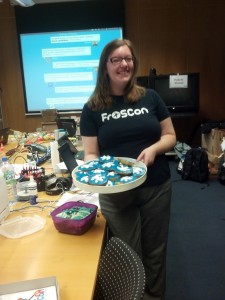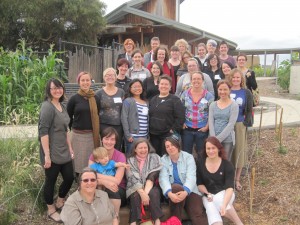I just finished giving my keynote at FrOSCon, and am pasting the notes I spoke from below. This was meant to be read aloud, of course. Where it says [slide] in the text is where the slides advance.
FrOSCon – Mistakes Were Made: Education Edition
[slide]
Thank you so much for inviting me here to FrOSCon. This is my first time visiting Bonn, and my first time enjoying Kölsch. I enjoyed quite a lot last night at the social event.
Especially, I would like to thank Scotty and Holgar who picked me up at the train station, Inga who talked with me at length on Thursday night. All the volunteers who have done a terrific job making this conference happen. Thank you all so much for a wonderful experience, and for cooking all the food last night!
And I promised to show off the laser etching on my laptop I had done here by the local hackerspace. I come from the PostgreSQL community, so I got an elephant etched into the laptop. It only costs 10 euro and looks awesome.
[slide]
I’ve also made a page of resources for this talk. I’ll be quoting some facts and figures and this pirate pad has links to all the documents I quoted.
For those of you from countries other than Ireland, Great Britain, United States, German and Turkey – if you know where to get a copy of computer science curriculum standards for your country, please add a link. Right at the top of this pirate pad is a link to another pirate pad where we’re collecting links to curriculum standards.
[slide]
And finally, this talk is really a speech, without a lot of bullet points. So, the slides will hopefully be helpful and interesting, but occasionally I will be showing nothing on a slide as I speak. This is a feature, not a bug.
[slide]
For the past few years, I’ve been giving talks about mistakes, starting with problems I had keeping chickens alive in my backyard. Here’s a map of my failures. Scotty is familiar with the video that is online that tells the whole story of how all these chickens died.
Next, I talked about system administration failures – like what happens when a new sysadmin runs UNIX find commands to clean up — and delete all the zero length files, including devices, on a system. Or how to take down a data center with four network cables and spanning tree turned off. Here’s a tip: it really only takes first cable.
Continue reading


